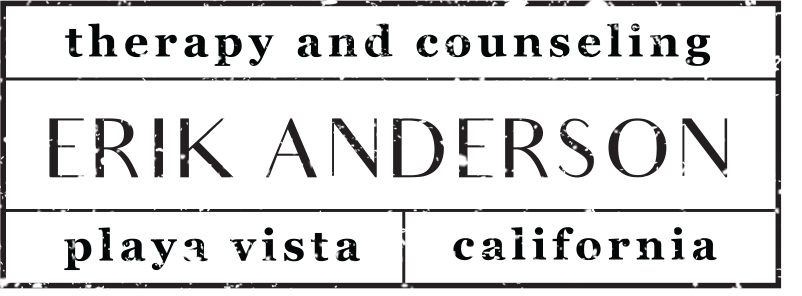Divorce Therapy
Divorce can be a devastating event. No matter the particular situation, divorce is a major loss, and grieving the dream you once had of a lifetime with your partner is disorienting—or even debilitating. You may find yourself experiencing bouts of doubt, confusion, anger, relief, numbness, sadness, and shame—perhaps even all in one day—as you adjust to the idea of this major change.
As a marriage counselor in Los Angeles, I’ve been fortunate to work with individuals and couples during all relationship phases—from the excitement and stress of moving in together, to working through major, unexpected conflicts.
But as we all know, some things cannot be repaired. Working with clients who are preparing to ask for a divorce, in the middle of the divorce process, and who are still struggling to sort through the pieces after settling into their new living situation, has given me great insight into the myriad facets of this deeply painful—no matter how necessary—decision.
If you’re struggling with any of the stages of a divorce, read on to learn more about my perspective on and approach to, divorce therapy.
Understanding the Complexities of Divorce
Even the most straight-forward divorces have complicated factors. There are difficult questions about how to relate to the ex partner during and after the split. And throughout the process, grief complicates our ability to manage our day-to-day lives. Grief takes many forms, and the stress of navigating the logistical aspects of a divorce exacerbate the complexity of the emotions you experience throughout the split. In my practice I use a range of psychotherapy modalities to help you sort through the past, make sense of the present, and work toward healing. In divorce therapy sessions, this tailored approach is especially important as your needs change throughout this major life transition.
Advantages Of Divorce Therapy
There’s no way around it: divorce is painful. Unfortunately, divorce therapy won’t eliminate the pain—but it will give you the tools to cope without unnecessarily complicating or extending your grief.
As a marriage counselor in the Los Angeles area, I’ve worked with both men and women experiencing divorce. I’ve found that the specific benefits of divorce therapy are almost as unique as the divorces themselves, as each person’s healing looks a little different. But, across all of my clients experiencing divorce, I’ve found that those who regularly show up to sessions and try their best to be honest experience a lessening in their suffering.
Frequently Asked Questions
When Should I Seek Divorce Therapy?
Whether you’re thinking about separating or adjusting to life after the divorce, if you find yourself overwhelmed and suffering such that your everyday life is disrupted then having support from a therapist may help you get through this experience. There is not a specific amount of suffering that qualifies you for therapy during a divorce—you’re qualified for divorce therapy when you think having support from a therapist can help you cope with the experience. You do not have to wait until your suffering becomes unbearable; the earlier you seek help, the better.
If you’re still on the fence about making that first appointment, here are some indications that you should definitely reach out for help:
Experiencing intense anxiety, depression, or rage
Unexpected and/or unmanageable bouts of extreme anger, sadness, or panic
Having such strong emotions that your everyday life is disrupted (being unable to focus at work, feeling fatigued, snapping at friends and family, skipping meals, etc.)
Feeling lost, hopeless, or alone
Isolating from friends and community
Self-medicating with substances or harmful behaviors
Having strong emotions is normal during a divorce—but even though these emotions are expected they are difficult to cope with. Therapy doesn’t make grief go away, but it can help you find resilience, utilize skills to cope, figure out how to make meaning of the experience and rediscover the sense of purpose that you need to have a rich, meaningful life.
What If I Feel Worried About Being Judged During Divorce Therapy?
No one is at their best when going through divorce. This devastating life event may bring out some of your least favorite qualities and behaviors as you struggle to cope and adapt. First and foremost, it’s essential that you try to let go of judgment towards yourself.
As a Los Angeles-based marriage counselor, I’ve worked with countless couples and individuals of all ages, backgrounds, and relationship phases. When I meet a new client who has come to me during their divorce, I recognize that there is a life and person that came before and after this experience and in this moment, I’m only meeting one particular version of them. As a therapist, I’m honored when clients trust me with their unfiltered truth.
Clients often need to work through things that are extremely hard to talk about—things like child custody battles, violence, infidelity, and destructive or humiliating behaviors and events. No matter how low you might be feeling about yourself, you will find warmth and empathy in our sessions. You’ll be free to candidly express whatever you need to get off your chest. And rather than focusing on “good”/“bad” behavior, we’ll focus on getting back to wellbeing.
No matter what mistakes you might feel you’ve made during this agonizing period, you deserve compassion and support.
How Do I Know Divorce Therapy Will Work For Me?
If you’re ready to challenge yourself to be honest and you know there are things you want to change, you’re ready for therapy. As I learn about your unique life, relationship, and divorce, I’ll tailor our treatment plan to fit your needs. Along the way, we’ll discover together what kinds of strategies and tools work best for you.
Using new coping strategies isn’t always easy—but if you have an open mind and a desire to feel better, then therapy can work for you. Your reading this blog post is proof that you’re already taking positive steps.
You don’t have to go through this experience alone—contact me today to get started.

